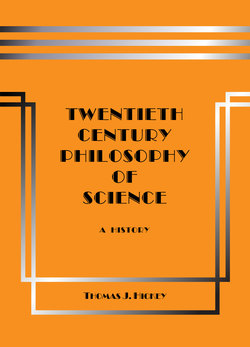Читать книгу Twentieth-Century Philosophy of Science: A History (Third Edition) - Thomas J. Hickey - Страница 15
На сайте Литреса книга снята с продажи.
Discovery:
ОглавлениеThe discovery of theory in social science may be either the social scientist’s introspective reflection on his own ideas and motivations originating in his actual or imaginary experiences or originating in empirical survey research findings reporting respondents’ expressed ideas and motivations.
Romantics define “social theory” as language describing subjective mental states, notably culturally shared ideas and motivations.
Some romantics call the vicarious imputations based in introspective reflection “substantive reasoning” or “interpretative understanding”. But all romantic social scientists deny that social theory can be developed by data analysis exclusively or by observation of overt behavior alone.
Romantics therefore oppose their view of the aim of science to that of the positivists’ such as the sociologist George Lundberg and the behavioristic psychologist B.F. Skinner. Romantics say they explain consciously purposeful and motivated “human action”, while the behaviorists say they explain publicly observable “human behavior”. Some romantics call the study of human action “hermeneutics”.
